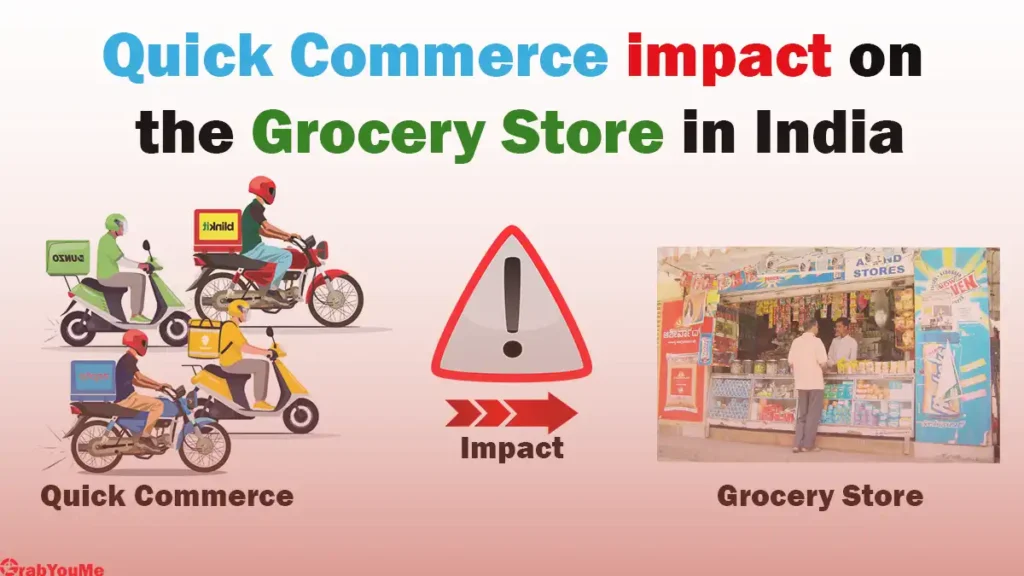
Quick commerce is a newly developed platform in the commerce industry in India, emerging during the lockdown period. In this article, we will discuss how the rapid growth of quick commerce could impact grocery store owners in the future.
Understanding Quick Commerce
Quick commerce, as the name suggests, operates similarly to traditional e-commerce platforms like Amazon and Flipkart, which enable customers to shop online. However, while standard e-commerce deliveries typically take 5–7 days (depending on location), quick commerce revolutionized the industry by promising ultra-fast delivery—often within 10 minutes—for groceries.
Initially, companies like Grofers (now Blinkit) and BigBasket focused on grocery delivery but did not adopt the 10-minute model. The shift began when Zepto, India’s first dedicated quick commerce player, introduced the innovative concept of “dark stores”—small, strategically located warehouses stocked with essentials. By setting up multiple dark stores across a city, Zepto ensured products could reach customers in under 10 minutes. This model proved so effective that competitors swiftly adopted it.
Over time, quick commerce platforms have expanded beyond groceries to include electronics, beauty products, and other categories, further broadening their appeal. Major players in this sector include Blinkit, Zepto, Swiggy Instamart, and BigBasket. Currently, Quick Commerce operates in more than 50 cities in India, with companies aiming to expand their presence to additional locations.
Impact on Grocery Store Owners
The rise of quick commerce is disrupting the livelihoods of traditional grocery store owners. In 2024 alone, over 2 lakh kirana stores shut down across India. Projections suggest this number could rise to 30 lakh in the next 5–6 years—nearly one-fourth of India’s total grocery shops. Such a decline could leave lakhs of families unemployed. Alarmingly, this trend correlates with the surging demand for quick commerce platforms.
Finding solutions to this disruption is challenging, as quick commerce continues to grow in popularity. Consumers increasingly prefer these platforms due to their convenience. Surveys indicate that urban shoppers favor quick commerce over offline grocery and retail stores.
Quick commerce is not only affecting small grocery stores but also large organized retail companies like Reliance Retail and DMart. As consumer habits shift towards instant delivery, these retailers may also need to rethink their strategies.
Conclusion
In conclusion, while quick commerce offers undeniable convenience, its rapid growth demands a balanced approach to safeguard the interests of small businesses and ensure inclusive economic progress.


